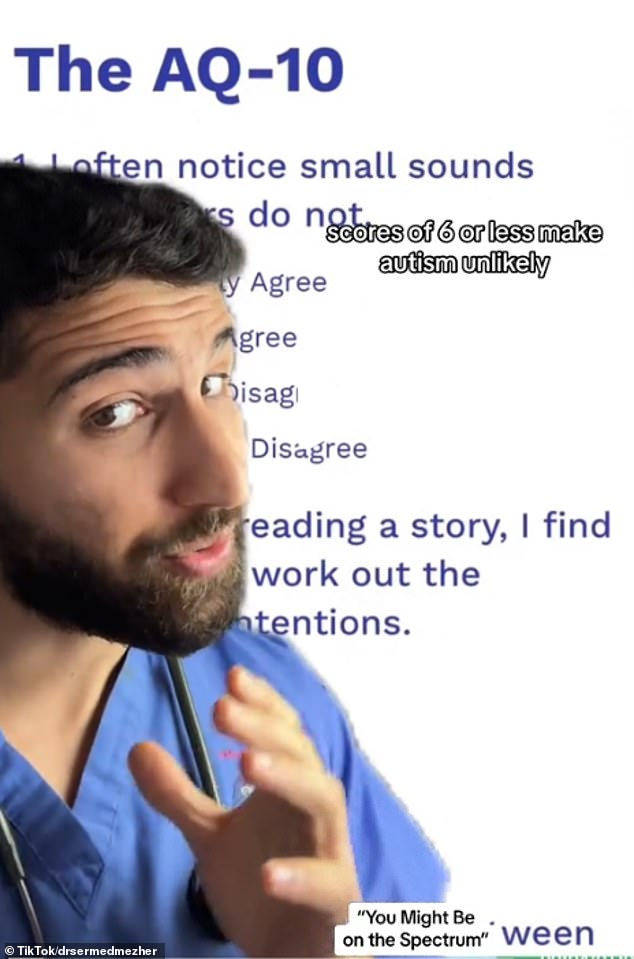Doctor reveals the ten questions that can determine whether YOU have autism
A top GP has taken to social media to share the top ten questions that can help determine whether someone has autism.
London-based physician Dr. Sermed Mezher outlined the signs and symptoms to his 281,000 TikTok followers this week.
The simple questionnaire, called the Autism Spectrum Quotient-10 (AQ-10) test, is used by clinicians to see if someone shows general characteristics of the condition.
It is designed for people over 16 and consists of ten questions that focus on social skills and communication. If you score more than six points, you may be autistic.
It is estimated that around 700,000 people, including adults and children, in Britain have a diagnosis of autism, while thousands more have it without knowing it.
As the number of children affected continues to rise, MailOnline revealed earlier this year that families in some areas are waiting up to four years for an assessment.
Being autistic, says the NHS, ‘does not mean you have an illness or disease’, but ‘means your brain works in a different way to other people’s.’
Autism can vary greatly between individuals. Some will be able to live a fully functioning life without additional assistance, while others may require full-time assistance.
London-based doctor Sermed Mezher, who has 281,000 followers on TikTok, shared a screening tool designed to identify signs that someone might have autism

In the video he reveals that symptoms such as finding it difficult to communicate, taking longer to process information or doing things repeatedly could all mean you have autistic traits.
Classic signs of the disability include communication problems, finding certain situations overwhelming and repetitive behavior.
“The Autism Spectrum Quotient-10 is a brief screening tool designed to identify signs that someone may have autism,” said Dr. Mezher.
‘It consists of ten questions that focus on social communication, behavior and how someone processes information.
‘Although the AQ-10 can provide an indication of autistic characteristics, it is not a diagnostic tool.
‘A high score on the AQ-10 suggests that further testing may be necessary, but it cannot confirm a diagnosis of autism.’
Dr. Mezher also added that “the test serves as a preliminary step to highlight whether a more comprehensive evaluation by a healthcare professional is warranted.”
He continued: ‘An official diagnosis requires in-depth analysis, including clinical interviews, developmental history and observations by specialists.
‘The AQ-10 can be a useful first step in recognizing possible signs of autism, but is not definitive – just a guide to help determine whether additional professional insights are needed.
‘This test helps doctors find out whether you might have autism or not. Scores of six or less make autism unlikely. Go with your first instinct.”
To take the test yourself, answer the questions in the panel below…
